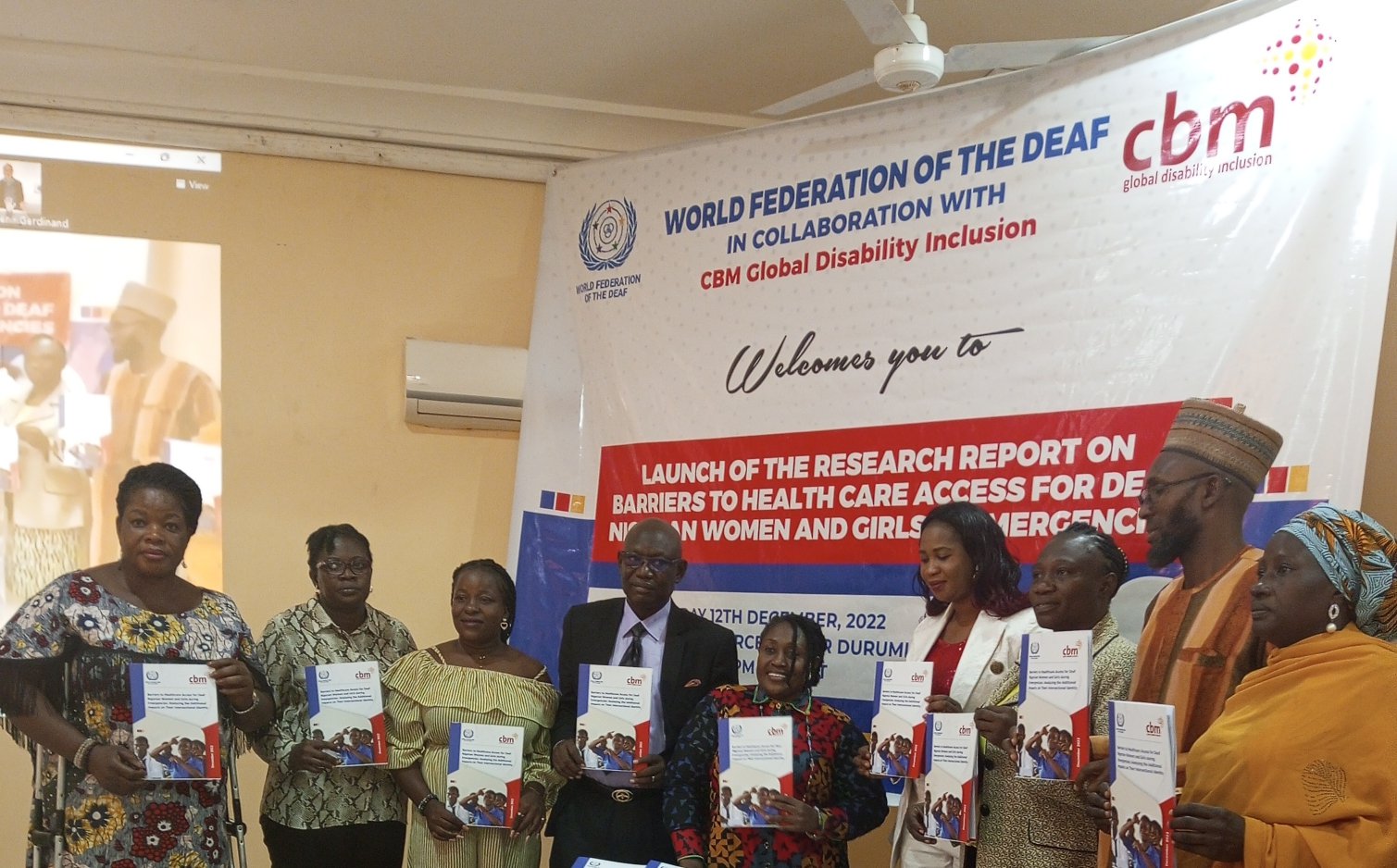The Country Director, CBM Global Disability Inclusion, Ms. Ekaete Umoh has expressed dissatisfaction over discrimination and lack of access to information by deaf women and girls to access basic healthcare services in Nigeria.
Umoh while speaking in Abuja on Monday at the launch of the World Federation of the Deaf Research Report on barriers to healthcare access to deaf Nigerian women and girls during emergencies stated that despite Nigeria ratification of the UN Convention on the Rights of Persons with Disabilities (CRPD)
deaf women and girls are still largely discriminated in terms of access to information before and during emergencies.
“Despite the Nigeria ratification of the UN Convention on the Rights of Persons with Disabilities (CRPD) on 24 September 2010, the Sendai Framework and their extant legal protocols which recognizes full and equal access and participation in societies and communities for persons with disabilities as a fundamental right, including in times of crisis, deaf women and girls are still largely discriminated in terms of access to information before and during emergencies”.
Umoh explained that the World Federation of the Deaf (WFD) seeks to address the intersection of being deaf and being a woman when facing emergency and disaster situations and requesting healthcare services, hence the report presents preliminary research on the experiences faced in health care by deaf women and girls in Nigeria, highlighting the most recent emergency and disaster situation, the Covid-19 pandemic
Corroborating, President, World Federation of the Deaf (WFD), Joseph Murray stated that Deaf women and girls in Nigeria are at higher risk of inadequate healthcare services and treatment due to stigma associated with deaf people and vulnerability caused by gender bias, their socio-economic situation and absence of opportunities to seek help in their national sign language.
Murray however recommended that there should be deaf awareness training in the hospitals to build language acceptance environments, also, deaf experts should be hired in hospitals, healthcare facilities, government health departments to advise and support deaf-inclusive public policies and programs.
He added that there should be Investment in deaf education, focusing on intersectionality issues that can reduce the long – term financial burden off the government with collaboration international organizations to develop further research to dig deeper into the issues of intersectionality among women and girls.
Executive Director, CBM Global, David Bainbridge, stated that CBM Global will provide funding to WFD for 2023 to pursue a number of great priority and joint projects whilst focusing on replicating Nigeria based research with deaf community members, also access how accessible and safe hospitals are for deaf visitors using the accessibility goal guide as a tool.
Executive Director, Ability Plus, Janet Fasakin on her part charged the government federal government through federal ministry of health and other agencies to take up sign language provision for health as a priority for deaf women and girls, hence issues confronting them would be addressed and solved.



